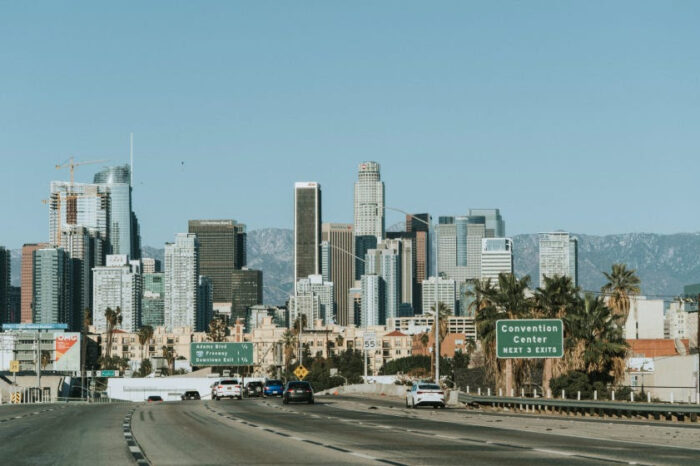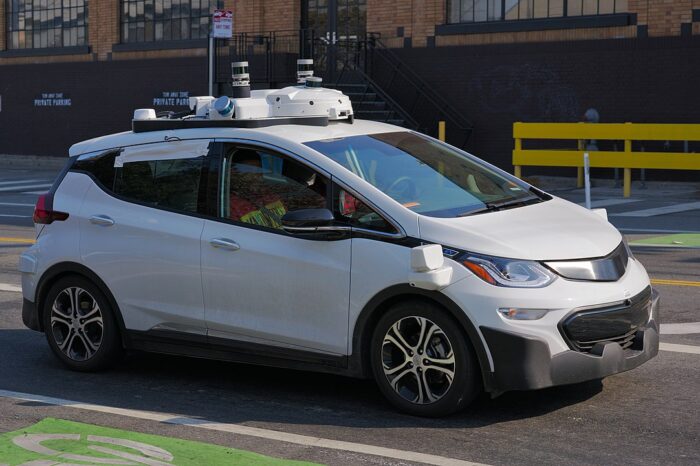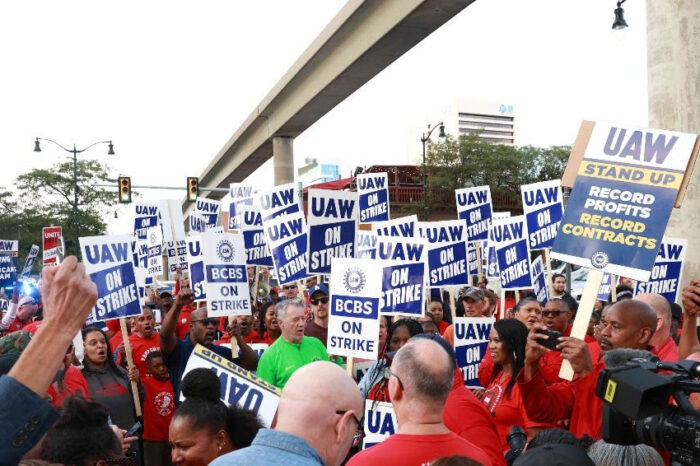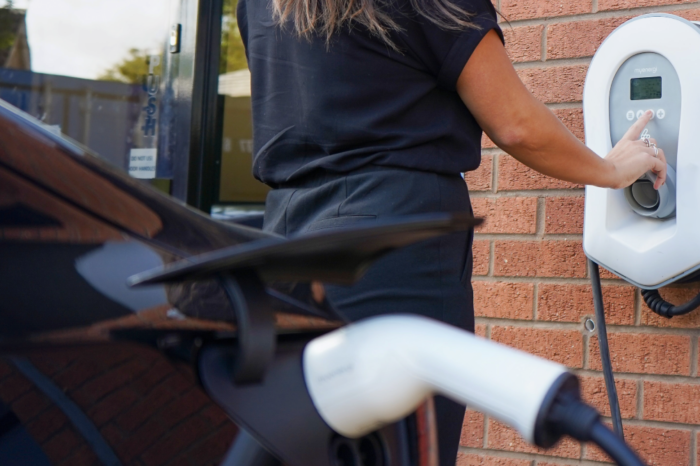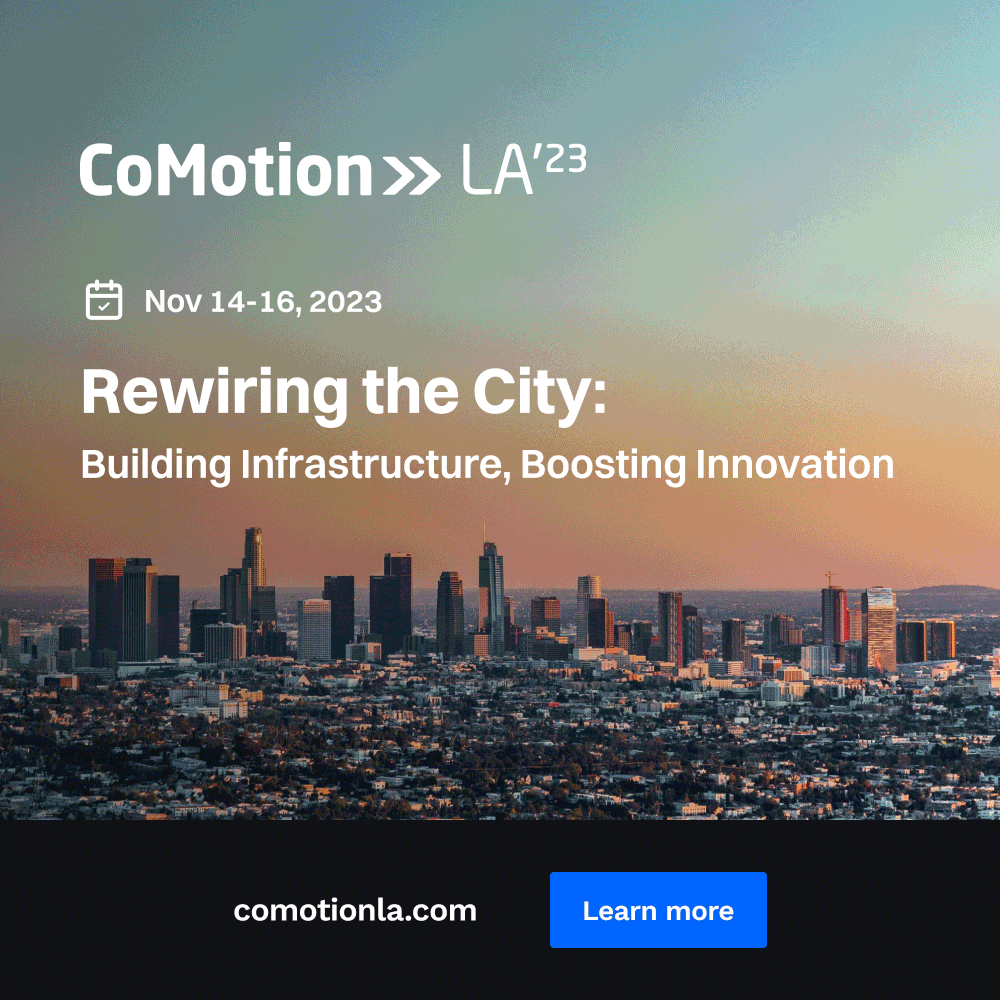The senator who once campaigned on (literally) shooting down President Obama’s environmental agenda happens to be in charge of writing the Democrats’ climate legislation. With only 50 votes in the Senate, Democrats have no choice but to work with Joe Manchin, who has deep ties to the coal and natural gas industries. Elsewhere on Capitol Hill, a once-promising tax credit for e-bikes gets watered down.
Lucid announces a record-breaking battery range of 520 miles, putting it head-and-shoulders above Tesla. Speaking of Tesla, it will soon come out with a new beta of its controversial Full Self Driving software, but only for those who can prove they’re responsible enough to use it. Walmart is launching yet another autonomous delivery pilot. GM, already struggling with a microchip shortage, is also facing a battery shortage as it tries to replace batteries for recalled Chevy Bolts.
Over in China, tech giant Baidu expands its robo-taxi fleet while rival Alibaba shovels money into DeepRoute.ai, another robo-taxi operator. In Taiwan, e-scooter company Gogoro is going public via SPAC.![]()
All eyes on Joe Manchin: As Joe Biden tries to get ambitious climate policy passed in the coming months, West Virginia Sen. Joe Manchin, a moderate with strong ties to the fossil fuel industry, is the key swing vote. And as chairman of the senate committee that oversees energy policy, the veteran moderate will play a key role in crafting climate legislation. Environmentalists worry he will move to significantly weaken the most important part of the plan: incentives and penalties to push utilities towards renewable energy. And without a clean electric grid, there’s only so much EVs can do to reduce emissions and combat climate change.
520!? The Lucid Air Dream Edition gets a record-breaking EPA range rating of 520 miles, blowing past the 406 mile range of Tesla’s Model S. It’s a mighty feat, but a costly one: the Dream Edition will retail at $169,000. The base model, which will only cost $77,400, has a range of 406 miles, making it similar in range and price to the Model S Long Range.
…and speaking of Elon Musk: Tesla chief Elon Musk decries the EV tax credit program proposed by House Democrats, saying that the legislation, which will offer bigger credits for cars made by union workers, “is written by Ford/UAW lobbyists.” He added, “Not obvious how this benefits the American taxpayers.” Honda and Toyota, which are also non-union, are lobbying against the bill as well.
The most EV-friendly cities: StorageCafé, the home improvement site, ranks America’s 100 largest metro areas on EV-friendliness based on three metrics: EV ownership, EV infrastructure and the percentage of electricity generated by clean energy. The top-ranked city is San Jose, followed by San Francisco, Seattle and Los Angeles. Washington D.C. and Atlanta were the only cities outside of the West that made it into the top 10. Work to do, folks.
Another partner for Ryder: Ryder, the Miami-based fleet management company, announces a deal to provide maintenance, yard management and fleet operations to autonomous trucking startup Embark. Ryder will also help the San Francisco startup set up 100 transfer points where driverless trucks will drop off cargo to be delivered to their final destination by human-operated trucks. Ryder has struck similar deals with Waymo, Via and TuSimple.
Walmart expands AV delivery pilot: Walmart customers in Austin, Miami and Washington D.C. will soon be able to get groceries delivered to their doorstep by driverless Ford Escapes. The retail giant, which has other ongoing delivery pilots with Gatik and Cruise, says the new pilot will begin with a small fleet of vehicles in the three cities and eventually expand. The AV technology powering the Ford vehicles is provided by Pittsburgh-based Argo AI.
Parts shortage keeps GM plants closed: General Motors is extending downtime at several crossover assembly plants due to the ongoing global shortage of microchips. At the same time, it is extending a production shutdown for Chevy Bolt EVs for another three weeks as it races to acquire new batteries for the tens of thousands of Bolt owners whose vehicles have been recalled due to battery defects linked to fires.
…while Ford hires at Lightning pace: America’s #2 automaker invests another $250 million and adds 450 jobs at three Michigan plants as it ramps up production of the electric F-150 Lightning.
It’s faster than driving: Weeks after Paris imposed a citywide speed limit of 30 kph (18 mph!), a running apparel store smells a marketing opportunity: it hired a group of professional runners to book it through the streets of Paris, past cars and over the (driving) speed limit.
Signs of the times in Philly: Philadelphia’s public transit agency, SEPTA, launches a $40 million wayfinding overhaul for its rail system, which has long been derided as confusing (or absent). Agency leaders frame it as an important way to invite more people back to a public transit system that has been battered by the pandemic and rising car ownership in urban neighborhoods.
![]()
Look to the skies: Automakers are increasingly pinning their hopes for autonomous vehicles on satellites. If driverless cars must be able to constantly transit and receive data, cell towers may not be enough.
Baidu expands robo-taxis: Shanghai becomes the fifth city in China where you can hail a ride from a driverless car operated by Baidu, the Chinese search engine giant. It plans to eventually have 200 of its own driverless Hongqi EVs operating on city streets with a safety driver present at all times in the driver’s seat. However, Baidu’s robo-taxis in Shougang Park, the 1.2 square mile innovation district in Beijing, do not have a safety driver; they only have an employee sitting in the passenger seat.
It’s so good it’s … dangerous? Tesla chief Elon Musk says that the beta of the new Full Self Driving software will soon be available to Tesla owners who allow the company to track their driving for a week. Those deemed responsible drivers will earn the right to … not drive. However, warned Musk, who has faced sharp criticism for misleading the public about Tesla’s AV capabilities, the new technology “can seem so good that vigilance isn’t necessary, but it is.” Oh, OK…
Alibaba boosts AV startup: The Chinese tech giant leads a $300 million funding round for Shenzhen-based startup DeepRoute.ai, which makes hardware and software for driverless cars and operates a fleet of robo-taxis.
 A more measly e-bike credit: E-bike supporters in Congress have reduced their proposed tax rebate for e-bike purchases from 30% to 15% in hopes of gaining more support. The updated bill also reduces the credit for those above certain income thresholds. It begins to scale down for individuals making above $75,000 a year and is eliminated entirely for households above $150,000. Sigh…this hardly looks like a game-changing incentive that will get Americans onto bikes.
A more measly e-bike credit: E-bike supporters in Congress have reduced their proposed tax rebate for e-bike purchases from 30% to 15% in hopes of gaining more support. The updated bill also reduces the credit for those above certain income thresholds. It begins to scale down for individuals making above $75,000 a year and is eliminated entirely for households above $150,000. Sigh…this hardly looks like a game-changing incentive that will get Americans onto bikes.
Gogoro going public: Gogoro, the Taiwan-based e-scooter startup, plans to go public at a valuation of $2.35 billion by merging with Poema Global, a blank check corporation affiliated with Princeville Capital. In addition to making its own vehicles, Gogoro makes swappable batteries, charging stations and a cloud software that tracks battery condition.
![]() Reuters dives into the challenges that forced major automakers, most recently Ford, to give up on India.
Reuters dives into the challenges that forced major automakers, most recently Ford, to give up on India.
The New York Times explores a radical mobility initiative in rural South Korea: 9¢ taxi rides.
Bloomberg CityLab takes a look at the early days of New York City’s e-scooter pilot in the Bronx, a borough that is struggling to emerge from decades of misguided transportation policy.
Enjoy the Week in Review? Get it delivered directly to your inbox by signing up for the CoMotion>>NEWS newsletter.
